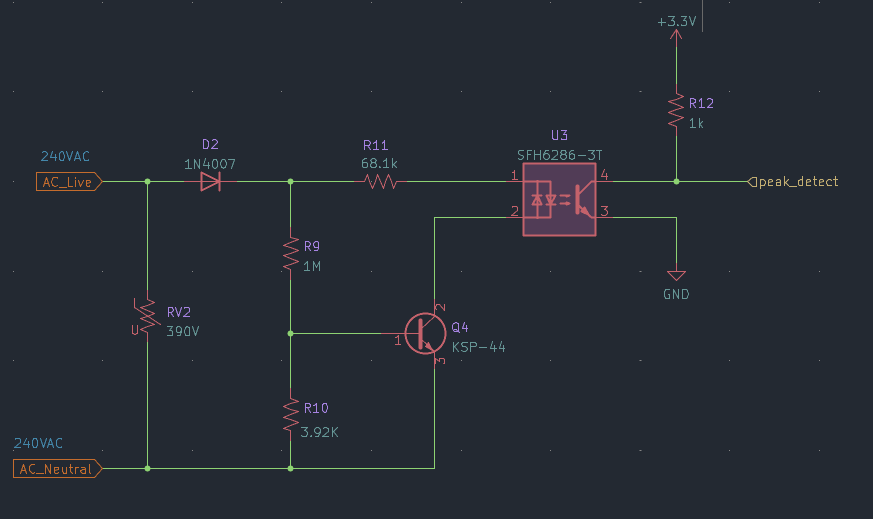I have adapted the circuit from Michael's circuit in Efficient method for isolated detection of AC voltage without a stepdown transformer to detect on either side of the positive half-cycle peaks, rather than at zero crossing. I did this for two reasons, one being that I would like to simplyfy the circuit, and secondly, to save some energy - and only drive the opto-coupler on either side of the positive peak.
Does anyone see any disadvantages/dangers with this design, besides having a much shorter time period in which to read the output pulse?
If I recorded the midpoint in time between the falling and rising edge of the output on one half cycle, I am hoping to detect within 1mS of the voltage peak.

